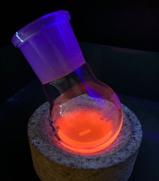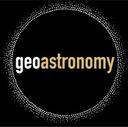University of Bayreuth, Press Release No. 071/2025 – 04.09.2025
New Top-Level European Funding for Researchers at the University of Bayreuth
The European Research Council (ERC) is awarding four early-career researchers at the University of Bayreuth new ERC Starting Grants, each worth €1.5 million. Their research topics span from sustainability in metal material cycles, to artificial intelligence, polymer science, and high-pressure mineralogy. In addition, Professor Dr. Stephen Mojzsis, a recipient of an ERC Synergy Grant, is joining the University of Bayreuth. He is researching the physical and chemical properties of Earth-like planets in our galaxy.

Prof. Dr. Johannes Buchen, Junior Professor of Geomaterials, is investigating water-bearing phases in the Earth’s lower mantle as part of his ERC Starting Grant-funded project. Water is not only the foundation of life on Earth, but also a key player in the geological processes that shape the Earth. For billions of years, the Earth’s surface has been in continual exchange with its interior through volcanism and plate tectonics. This exchange has fuelled a deep water cycle that may extend all the way to the lower mantle. This largely unexplored zone could have played a crucial role in stabilising the oceans and atmosphere, thereby supporting the persistence of life-friendly conditions on Earth. The aim of HYDROSPHEAR is to determine whether, and how, water can be stored in the rocks of the lower mantle. Although this region accounts for nearly half of the Earth’s mass, it remains unclear whether any significant amounts of water are present there at all. Buchen seeks to close this gap in knowledge by studying the stability and properties of specific water-bearing crystals in experiments at conditions of the lower mantle and comparing the results with geophysical data. This will help estimate how much water might be stored in the lower mantle, and where exactly it may be located. The project will begin in early 2026 and is funded for five years with €1.5 million.


Prof. Dr.-Ing. Christoph Helbig, Chair of Ecological Resource Technology, has been awarded an ERC Starting Grant for his research project „SEMPATHY: Socio-Economic Metabolism Pathways for Sustainable Metal Cycles“ (SEMPATHY). The project aims to develop an innovative methodology to address the urgent issue of dissipation in global metal cycles, laying the foundation for a sustainable, resilient, and secure supply of technology metals.
As global demand for these metals rises—driven by renewable energy, e-mobility, and digitalisation—the environmental impacts of metal production and processing are becoming increasingly significant. SEMPATHY tackles this challenge by developing a revolutionary modelling framework that, for the first time, enables a systemic view of global metal cycles. It can track metals as alloying elements, impurities, or within waste streams. The result will be digital, interactive metal pathway maps that trace the journey of technology metals from mining to recycling, taking into account yield rates, elemental composition, and unintended contamination. The project is set to begin in January 2026 and will be funded through to 2030 with €1.5 million.
Prof. Dr. Christopher Künneth has received an ERC Starting Grant for his project „Generative Polymer Informatics“ (genPI). His research aims to use generative artificial intelligence to create novel polymer structures with precisely tailored properties, thereby accelerating the traditionally resource-intensive and manual discovery processes in polymer science. This groundbreaking approach promises to unlock entirely new classes of polymers and directly addresses key global challenges such as ecological sustainability, enhanced functionality, and innovative synthesis methods. If successful, the project could revolutionise polymer production—from sustainable manufacturing to healthcare—and foster collaboration and innovation between academia and industry. The project will be funded for five years starting in 2026, with a total of €1.5 million.
Prof. Dr. Alex J. Plajer, Junior Professor of Macromolecular Chemistry, has also received €1.5 million in funding over five years starting in February 2026. His research project, “PolyMetal – Chiral One-Dimensional Enchainment of Metals” (PolyMetal), aims to develop new types of plastics that, unlike conventional ones made from chains of carbon atoms, are composed of chains of metal atoms. This could lead to an entirely new class of semiconductors with the potential to double the energy efficiency of displays and open up new possibilities in fields ranging from quantum computing to medical technology.

To achieve this, Plajer plans to create plastics with a unique architecture that harnesses so-called metallophilic interactions – weak but highly directional attractive forces between metal atoms. These interactions allow metal ions to be stabilised and electrically linked like beads on a string. This arrangement results in a distinctive electronic structure, where the metal chain acts as a conductive pathway, while a twisted polymer shell precisely controls the material’s optical properties. The outcome could be materials that not only emit light very efficiently but also produce circularly polarised light – ideal for use in energy-saving display technologies. The project combines methods from polymer chemistry and coordination chemistry, and explores not only gold but also more abundant metals such as copper and iron for a sustainable approach.
ERC Synergy Grant Holder at the University of Bayreuth

Prof. Dr. Stephen Mojzsis is joining the University of Bayreuth with one of the most prestigious research grants awarded by the European Research Council: an ERC Synergy Grant. At the Bavarian Research Institute of Experimental Geochemistry & Geophysics (BGI) of the University of Bayreuth, he will spend the next six years working with partners at Ludwig Maximilian University (LMU) in Munich and the Centre National de la Recherche Scientifique (CNRS) in Orléans on the project “GEOASTRONOMY”, which focuses on planets beyond our solar system: exoplanets.
To date, there has been a lack of knowledge about the elements that make up exoplanets, the composition of their atmospheres, and the forces and processes that determine their internal structures (so-called geodynamic processes). The international research project GEOASTRONOMY, coordinated at the BGI, aims to close this gap in understanding, particularly with regard to the question of how rocky planets like Earth form and evolve. The researchers are studying three categories of planets: sub-Neptunes (exoplanets smaller than Neptune), super-Earths (exoplanets larger than Earth), and ultra-short-period exoplanets, which may feature magma oceans and ionised atmospheres.
The interdisciplinary research team combines principles from the geosciences with those from astrophysics. Researchers at the BGI of the University of Bayreuth compute plausible overall compositions of exoplanets and their thermochemical evolution, which are then incorporated into geodynamic models. The results are subsequently utilised by researchers in experimental petrology (CNRS) and astrophysics (LMU). The ERC is funding the project for a period of six years with more than ten million euros, to be divided roughly equally between the three research locations.
Background: ERC Grants
ERC Grants are funding instruments of the European Research Council (ERC), awarded under the EU’s Horizon Europe programme (formerly Horizon 2020). They support frontier research and are awarded solely on the basis of scientific excellence—without thematic restrictions.
The ERC Starting Grant supports outstanding early-career researchers at the beginning of their independent careers for up to five years, with funding of up to €1.5 million. Applicants must demonstrate a promising track record in their field and submit an excellent research proposal.
ERC Synergy Grants are a special funding line aimed at tackling particularly ambitious and complex research questions that can only be addressed through close collaboration between multiple top-level researchers.


Prof. Dr. Johannes BuchenJunior Professor of Geomaterials
Bayerisches Geoinstitut (BGI)
University of Bayreuth
Phone: +49 (0)921 / 55-3709
Mail: johannes.buchen@uni-bayreuth.de
Website: www.geophormae.org

Prof. Dr.-Ing. Christoph HelbigEcological Resourcce Technology
University of Bayreuth
Phone: +49 (0)921 / 55-7540
Mail: christoph.helbig@uni-bayreuth.de

Prof. Dr. Christopher KünnethComputational Materials Science
Phone: +49 (0)921 / 55-7330
Mail: christopher.kuenneth@uni-bayreuth.de

Prof. Dr. Alex PlajerJunior Professor of Macromolecular Chemistry
University of Bayreuth
University of Bayreuth
Phone: +49 (0)921 / 55-3296
Mail: alex.plajer@uni-bayreuth.de

Prof. Dr. Stephen MojzsisGeoastronomy Research Group
Bayerisches Geoinstitut (BGI)
University of Bayreuth
Mail: stephen.mojzsis@uni-bayreuth.de

Theresa HübnerDeputy Press & PR Manager
University of Bayreuth
University of Bayreuth
Phone: +49 (0)921 / 55-5357
E-mail: theresa.huebner@uni-bayreuth.de